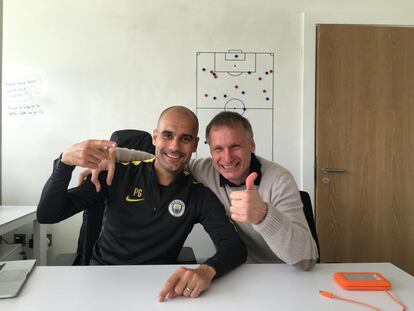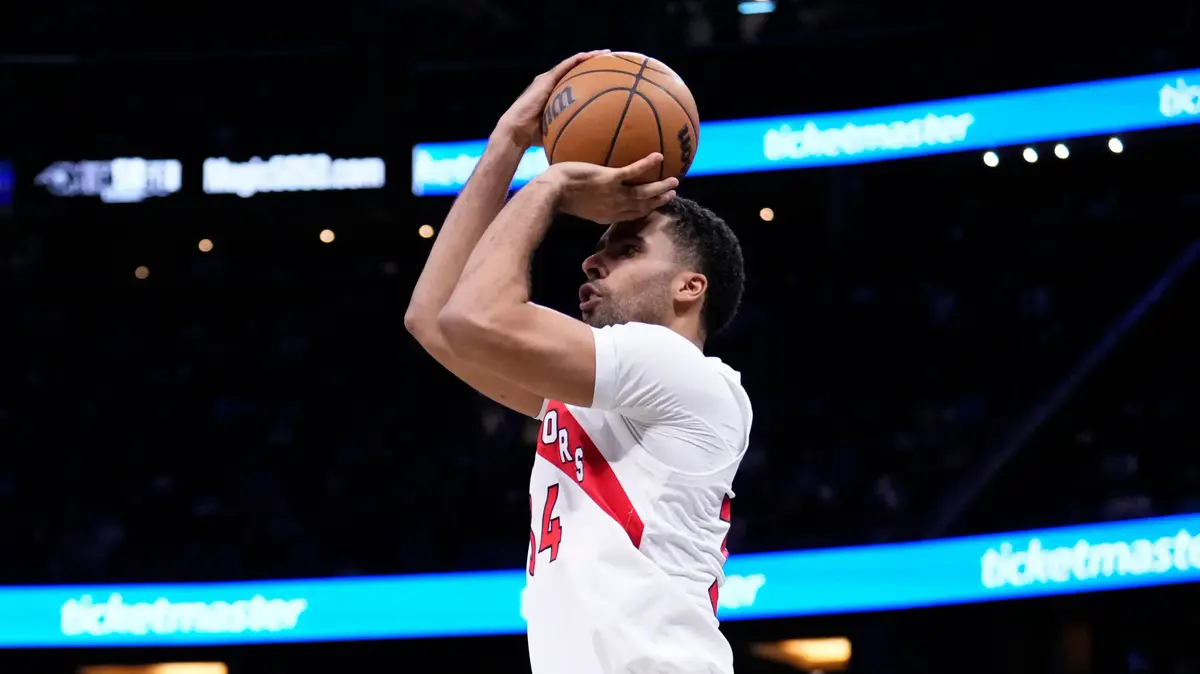The admirer and idol conflict is older than the Bible.
Soccer records notable cases of duels between mutually fascinated players.
But never in a Champions League final did a follower face the teacher he admired on the bench.
This is what the script envisions when Thomas Tuchel, the man who unleashed Chelsea, takes on Pep Guardiola tonight in Porto (9:00 p.m. CEST), the Manchester City manager who is seeking to add the third European Cup to a legendary race.
Michael Reschke was Bayern's sporting director when he attended the two coaches' first tactical bout. “In the 2013-14 season we played twice against Mainz de Tuchel,” he recalls, “Bayern won 0-2 in the first leg but did not get ahead until the 86th minute; and in the return we won 4-1 but until 65 we were 0-1 under. At the end, Pep asked me about the coach. He was struck by the fact that he wanted to beat us with such an inferior team. I had a good relationship with Tuchel because I had wanted to take him to Leverkusen when he was a quarry coach. After three years in Mainz, in 2014 he took a sabbatical year and came to live in Munich. One day I said to Pep: 'hey, I'm having dinner with Tuchel tonight'. And Pep didn't think about it: 'I'm going with you! ”.
Reschke was perplexed: “Pep was a legend, he had won two Champions.
But he canceled his engagement and came with me to meet Tuchel, a young, almost unknown German coach.
He had only trained Mainz.
He had never led an international match.
If I had told Pep that he was dining with Mourinho, I don't think he would have come.
I wanted to be part of the meeting with the kid!
Tuchel was happy: Guardiola was his idol ”.
“When I was coaching Mainz in the Second Division, from time to time Tuchel would travel to Barcelona to go to the Camp Nou”, explains Reschke;
“Not to see Barça but to see how Pep reacted to the situations of the matches.
I was trying to get videos of Guardiola's training sessions and read everything I could about him ”.
“We met at the Schumann's café in the center of Munich,” he recalls, “and as soon as they sat down they began to discuss football. No one can imagine what that was like! They first talked about the Bayern-Mainz matches. Then they continued talking about games from four years ago. Tuchel knew the lineups of the classics against Madrid by heart, pointed out the problems that had arisen throughout the 90 minutes, and asked Pep about his talks at halftime. Pep explained all the cause-effect relationships that the goals had produced. They began to use the table as if it were a board and to move the glasses, the salt shakers, the pepper shakers… It was incredible! I became a spectator. They were like watching Bobby Fischer versus Boris Spassky. I was amazed ”.
"One of the games they analyzed the most was the return of the 2009 Champions semi-finals, when Barça won at Stamford Bridge with a goal from Iniesta," says Reschke. “They spoke at length about the approaches, the chances, the substitutions. Now history repeats itself, only that Chelsea's manager is Tuchel ”.
Eight weeks after their first meeting, the duelists met Reschke again.
This time they chose Brenner's Munich steakhouse.
Attracted by the noise of sabers they were joined by Peter Hermann, who had been assistant to Klaus Topmöller with Leverkusen and Jupp Heynckes with Bayern in three Champions League finals.
"Hermann is an institution in Germany!" Says Reschke.
“But the evening was so incredible that the next day he called me: 'Thank you for the best football night of my life;
It was incredible!
I only regret one thing.
When he finished I called Barbara (his wife) and said: 'I'm retiring!
I always believed that I understood the game better than anyone, but I have met people who know much more than I do! "
Pep Guardiola with Michael Reschke in the City sports city.
“The atmosphere at those dinners was that of a legend meeting an advanced student,” says Reschke.
“Tuchel was an aspiring conductor and Pep was Karajan.
I think Guardiola wanted to compose the great symphony of his time, while Tuchel was a bit more technocratic.
He was looking a little more at the results and Pep was looking more for entertainment, artistic feats, creativity.
It was not worth Pep to win.
He wanted his team to score goals that reflected fresh ideas.
It seemed good to Tuchel to win on penalties ”.
"It is not a tennis match"
"This Champions League final once again shows that smart coaches are the ones who make the difference in today's football," concludes Reschke. “The times when great motivators tipped the scales of competition are over. The experience of retired players is no longer enough. Specialists are needed. I have been working in club football for 40 years. I have met wonderful people. But the best of all the personal experiences I had - the one that opened my eyes to football - was the three years that we worked together with Pep ”.
Tuchel took over Chelsea in January.
Since then he has faced City twice.
Both with victory, in the Cup (1-0) and in the Premier (1-2).
In the last meeting, at the Etihad, the two coaches took ten minutes to exchange ideas.
The tactic was, once again, the primary section.
"It's not me against Pep;
This is not a tennis match, ”Tuchel responded this Friday, when asked about the famous heads up.
“It is always difficult to play against Barça, Bayern or City when Guardiola is in command.
Today City is probably the best team in the world.
But we have shortened the gap: we did it in the Premier, we did it in the Cup, and we want to continue doing it tomorrow ”.
In the Champions League final that Barça won in 1992, Johan Cruyff became famous for the most optimistic and fleeting talk imaginable: “Come out and enjoy”.
When they reminded him yesterday, Guardiola's response dragged a quota of regret.
"I am persuaded that to win the finals you must suffer," he said;
“It's not about going out and enjoying yourself.
That's nice but most of the time you have to suffer, be resilient, adjust to the bad times ”.
Reschke argues that soccer has entered the age of coaches.
After listening to Guardiola, one would say that this is the age of complexity.
You can follow EL PAÍS DEPORTES on
and
, or sign up here to receive
our weekly newsletter
.










/cloudfront-eu-central-1.images.arcpublishing.com/prisa/RBFQGNGZ3QEU4FY4QMSDJQHSQA.jpg)

/cloudfront-eu-central-1.images.arcpublishing.com/prisa/SIL73HWCGXKSZBZRANYT36EZLI.jpg)